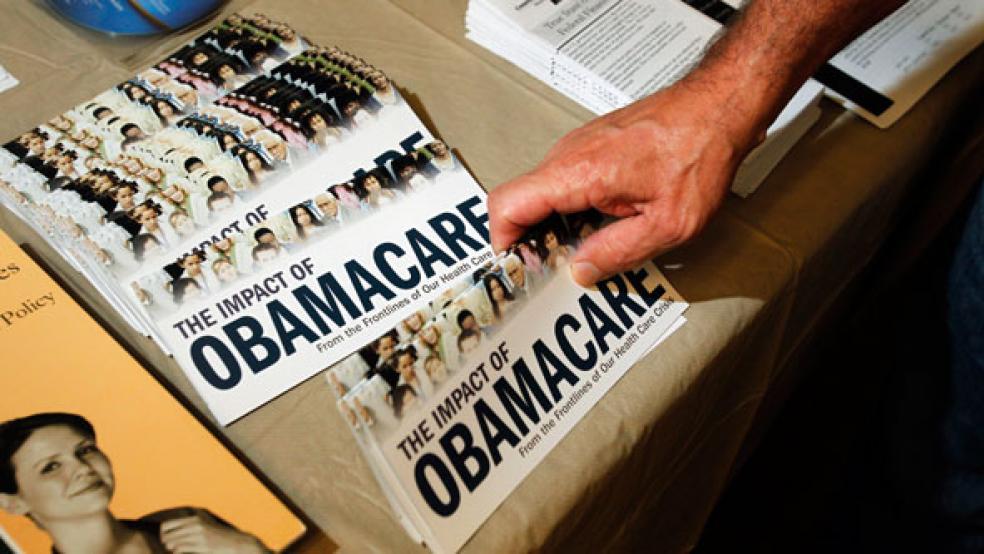As it has been implementing the 2010 law reshaping the U.S. health-care system, the Obama administration has instituted a series of delays and other changes to the way the statute works in practice. Some changes were prompted by the government’s technical and other difficulties in launching HealthCare.gov, the online insurance marketplace on which three dozen states rely. Other changes respond to complaints by specific groups of consumers or parts of the health-care industry. Major changes and the dates when they were announced:
2013
Feb. 7: One-year delay, until 2015, for the start of a Basic Health Program, under which states may hire private health plans to insure some lower-income residents who do not qualify for Medicaid.
April 2: One-year delay, until 2015, for requirement that small-business insurance marketplaces, known as SHOPs, must offer a choice of at least two health plans.
July 2: One-year delay, until 2015, for requirement that employers with at least 50 workers offer insurance to their full-time workers, or pay a penalty.
July 5: One-year delay, until 2015, for federal scrutiny of the income of applicants who, when applying for a federal subsidy, list an amount that differs too much from what they reported on their tax returns.
July 5: One-year delay for requirement that state-run insurance exchanges verify whether people applying for federal subsidies actually qualify for the help — or whether they are ineligible because they could get insurance through a job.
Sept. 26: (Four days before HealthCare.gov, the federal insurance marketplace, opened.) One-month delay, until Nov. 1, for the start of online enrollment in small-business SHOPs.
Oct. 23: Six-week delay for the time by which most Americans will be required to have insurance, giving people until March 31, instead of Feb. 15, to buy a health plan and avoid the risk of a government fine.
Nov. 14: President Obama says states may have latitude to let people renew for one more year insurance policies that would otherwise be cancelled as of Jan. 1 because they do not include all of the benefits required under the health-care law.
Nov. 21: Six-week delay for the start of the sign-up period to get coverage for 2015, postponing the first day of open enrollment from Oct. 1. 2014 to Nov. 15.
Nov. 22: Extension of deadline to sign up for coverage that takes effect on Jan. 1 by eight days, from Dec. 15 to Dec. 23.
Nov. 27: Delays for another year, until November 2014, online enrollment in small-business SHOPs, although small businesses can now get coverage directly from an insurer or an insurance agent or broker.
Dec. 12: Several changes to give consumers more time to pay for the coverage that will start on Jan. 1: directing insurers to give people until Dec. 31 to pay their first month’s insurance premiums and urging the industry to provide additional flexibility. Also lets states continue through January so-called high-risk pools — special insurance for people with illnesses that have made it difficult for them to get private insurance in the past.
Dec. 19: Policy change that allows consumers who have received notices that their health plans are being cancelled because they do not include benefits that will be required as of Jan. 1 two options for 2014: buy catastrophic — that is, bare-bones — insurance or entirely avoid the mandate that most Americans have health insurance.
Dec. 23: Computer system for HealthCare.gov is reset, with no public announcement, to give people one more day to sign up for a health plan in time for coverage to start Jan. 1.
2014
Jan 14: Second extension of high-risk pools, until mid-March.
Feb. 10: Second delay, until 2016, for requirement that employers with at least 50 workers must offer insurance to their full-time workers, or pay a penalty
Feb. 27: Policy change to allow consumers to get federal subsidies if they buy health plans outside the new insurance marketplaces, to prevent people from being stranded without coverage because several state-run exchanges are still riddled with computer defects.
March 5: Second extension to give states latitude for two more years to let people renew insurance policies that fail to meet the law’s benefits standards, so that consumers may buy such policies until October 2016 and keep them for one year after that.
This article first appeared in The Washington Post.
Read more from The Washington Post:





